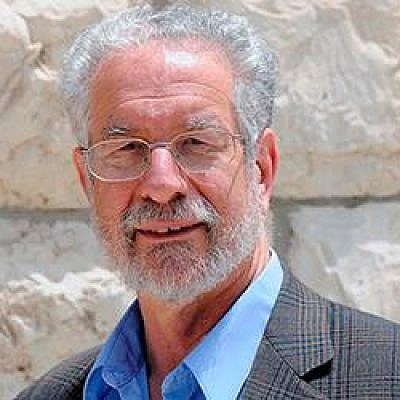The Arab-Israeli conflict is not a mirror-image
In an op-ed in the Los Angeles Times on May 13, Yossi Klein Halevi expressed the following ruminations on the Arab conflict with Israel and Zionism:
“Each side will need to honor the other’s narrative. … Israelis acknowledging the shattering of the Palestinian people and the destruction of their homeland … the Arab world acknowledging the shattering of ancient Jewish diasporas in the Middle East … each must acknowledge the sacrifice of the other.”
As a follower of Ze’ev Jabotinsky, I would like to postulate a slightly different position even as I accept what is at the base of Yossi’s thoughts above. In his two-part essay in 1923, “The Iron Wall and the Ethics of the Iron Wall,” which I am sure Yossi is quite acquainted with, Jabotinsky dealt with these issues.
Here are some extracts:
I am reputed to be an enemy of the Arabs, who wants to have them ejected from Palestine, and so forth. It is not true … it is quite another question whether it is always possible to realise a peaceful aim by peaceful means. For the answer to this question does not depend on our attitude to the Arabs, but entirely on the attitude of the Arabs to us and to Zionism … it is utterly impossible to obtain the voluntary consent of the Palestine Arabs for converting “Palestine” from an Arab country into a country with a Jewish majority.
The shattering that Yossi notes assuredly occurred but only because Arabs refused a partition plan in 1937 and another in 1947. The Zionist movement, admittedly excluding the Jabotinsky camp, accepted that compromise. Until the Arabs-called-Palestinians admit their diplomatic errors, there can be not parallelism, one which Yossi thinks can serve a palliative function.
In fact, ignoring the proper demand for one side to admit to its mistakes, and we have many, too many, on our side who do that (Zochrot, Gush Shalom, Gideon Levy, Amira Hass and the rest of the Haaretz crew), simply allows them to live in a fantasy historical dream. Even the concept of naqba (“catastrophe”) the Arabs have perverted, as it originally meant, by Qustantin Zurayq, who coined the term, the failure of Arabs to confront the Zionists successfully. It was Zurayq who accused the Arabs of “a primitive, static mentality,” not the Zionists. If Arabs did not affect “a fundamental transformation in their way of life,” he wrote, they would not “repel the Zionist danger.”
As a result of their impotence and internal structural and cultural weaknesses, it was what other Arabs did to the Arabs of Palestine that is the essence of his view of naqba. Today, it indicates a sort of Churban that Jews did to them and for which they disclaim all responsibility. That view has to be reversed.
If their victimization role is not eliminated, there will be no diplomatic success.
Jabotinsky continued and wrote:
Our Peace-mongers are trying to persuade us that the Arabs are either fools, whom we can deceive by masking our real aims, or that they are corrupt and can be bribed to abandon to us their claim to priority in Palestine, in return for cultural and economic advantages. … They feel at least the same instinctive jealous love of Palestine, as the old Aztecs felt for ancient Mexico, and the Sioux for their rolling Prairies. To imagine, as our Arabophiles do, that they will voluntarily consent to the realisation of Zionism, in return for the moral and material conveniences which the Jewish colonist brings with him, is a childish notion, which has at bottom a kind of contempt for the Arab people …
Jabotinsky and his genuine followers do grant respect to the Arab residents of the region of Palestine, that is, Eretz-Yisrael. There are very few Israelis who wish to do to them what they have done and wish to do to us. True, Jewish nationalists know that Arabs do have a longing for what they think of as their homeland.
But if they cannot admit that the name “Palestine” is Roman; that it never existed as a state entity ever; that the League of Nations in 1922 when creating the British Mandate did not employ the term “Arabs,” but rather “non-Jews,” and not because they were racist but because they knew that in one small corner of the former Ottoman Empire, the Jews would be entitled to a national home.
We view as a danger, the Arabs physical threat whereas their concept of danger is existential and therefore, only a complete negation of Jewish national identity, our religion, culture, history and all that is Zionism, is what will satisfy “Palestinianism.”
In the end, Jabotinsky concluded in a practical realization:
We cannot offer any adequate compensation to the Palestinian Arabs in return for Palestine. And therefore, there is no likelihood of any voluntary agreement being reached.
I would suggest the moderates and the left-wing progressives who dominate the Jewish conversation seeking compromise, acceptance and peace to admit their own contributions to the dismal state of the relationship the Arabs possess towards we Jews.
Yisrael Medad is an American-born Israeli journalist and author.

 46.0°,
Light Drizzle
46.0°,
Light Drizzle 




